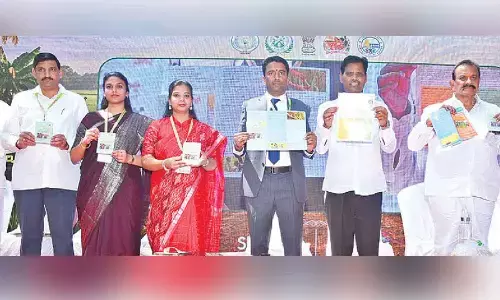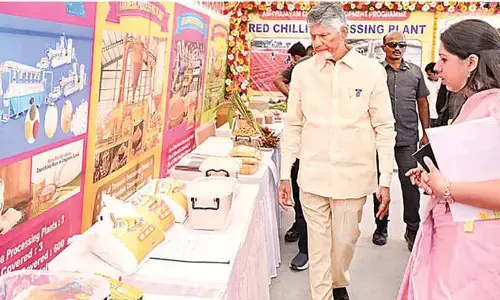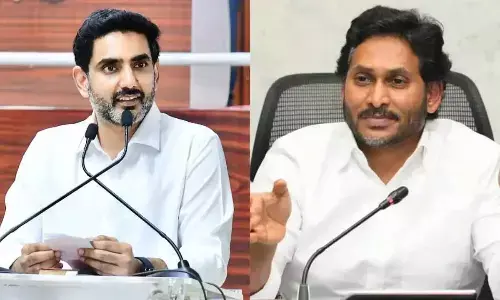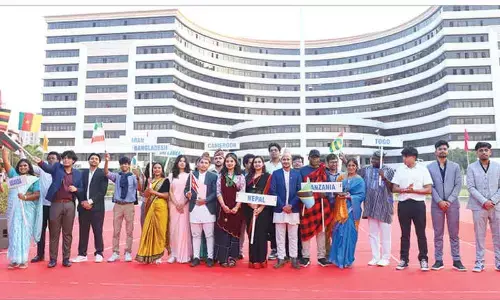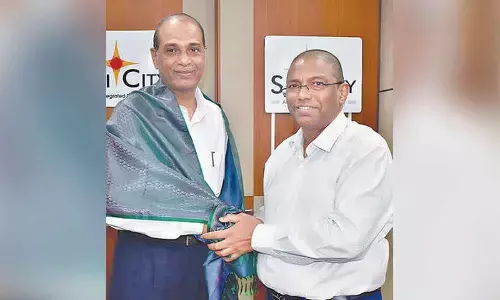Monsoon, movies, magic
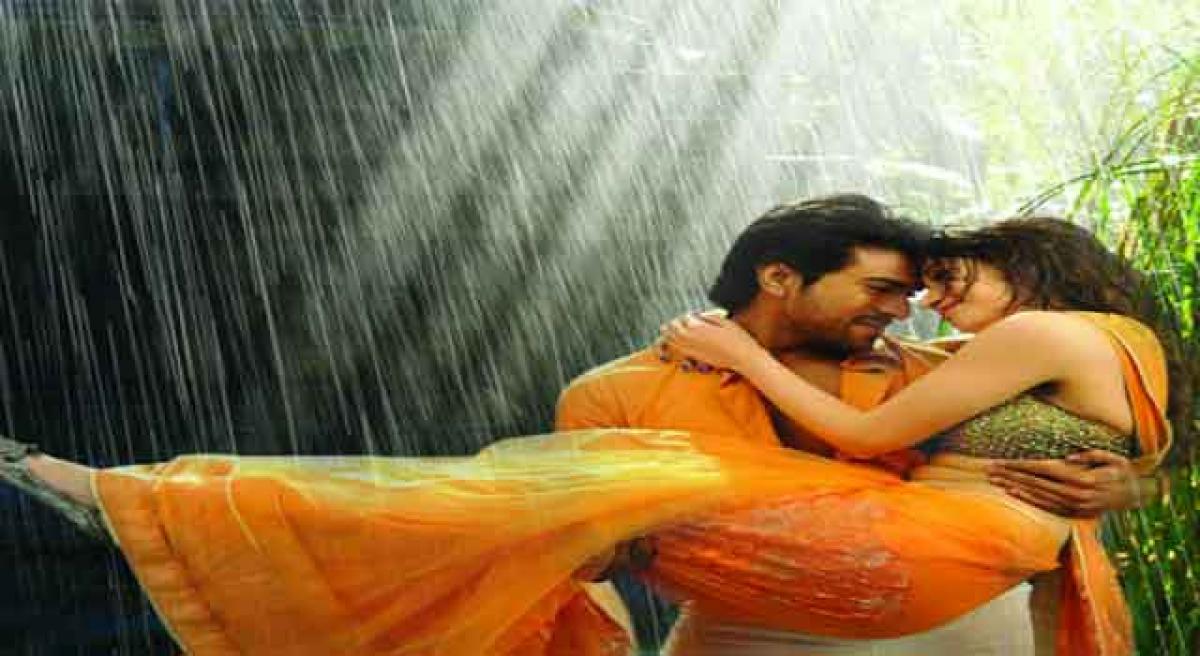
Rain may just be ‘the condensed moisture of the atmosphere, falling visibly in separate drops’ by definition but no filmmaker worth his salt would agree to reduce it to such mundaneness. From romantic to raunchy, from sentimental to steamy, from joyous to sorrowful, rain has always been depicted with verve and vengeance on the screen. It holds a great potential for symbolism, for mood, for poetry
Rain may just be ‘the condensed moisture of the atmosphere, falling visibly in separate drops’ by definition but no filmmaker worth his salt would agree to reduce it to such mundaneness. From romantic to raunchy, from sentimental to steamy, from joyous to sorrowful, rain has always been depicted with verve and vengeance on the screen. It holds a great potential for symbolism, for mood, for poetry and for a theme
“The unripe fruit, hiding behind the leaf, is drenched.
The bird, shy behind the branch, is soaked.
The heavens have showered down
…and beauty is uncovered.”
A bulky 50-plus-year-old NTR, dressed in bellbottoms and a hunter hat, does his typical PT-sir steps and a slim 20-year-old Sridevi coyly swings and clings. Tacky poetry, ungainly dance, garish set and an indifferent tune, yet, if the song is popular almost four decades after it appeared on silver screen in ‘Vetagadu’ and is re-enacted by NTR’s grandson years after, there is only one reason. It is a rain song. As was Chiranjeevi’s steamy chartbuster “Vaana Vaana velluvaaye” that got rebirth in the near-nakedness of Tamanna and Ram Charan.
Films and rain have shared a long and romantic relationship. So much so that there were films named after rain, virtually in all languages. ‘Varsham’, ‘Vaana’, ‘Gaali vaana’, ‘Barsaat ki ek raat’ etc are all iconic films that unfolded between curtains of rain.
From romantic to raunchy, from sentimental to steamy, from joyous to sorrowful, rain has always been depicted with verve and vengeance on the screen. It holds a great potential for symbolism, for mood, for poetry and for a theme.
Rain may just be ‘the condensed moisture of the atmosphere, falling visibly in separate drops’ by definition but no filmmaker worth his salt would agree to reduce it to such mundaneness. So, for long, rain and storm have been used as a backdrop for tumultuous occasions in life, life-changing situations, dramatic developments, for pain and grief, for joy and for breaking free. Rain is the teary-sorrow of the heroine; it is the breaking heart of the hero.
“Rain as a medium of expression is an old concept. But, essentially, there were only two kinds of emotions that rain was used to convey. One, romance. Two, strong turmoil when rain is a stormy one,” says Srinivas Challa, senior film critic. “Later, rain song was seen as a marketing USP. Even exhibitors used to ask if there was a rain song in the movie.
Now, rain song was synonymous with a skin show by the heroine. The stereotypical heroine would be dressed in a white saree and drenched thoroughly so that the song became more of a titillation than an appeal to the finer sense of romance. But then, skin sells. So the prominence for rain songs is there,” he adds.
Telugu cinema, which started on a note of romance with rain songs such as “Chitapata chinukulu padutoo unte”, “Kurisindi vaana naa gundelona”, “Chinuku chinuku padutoounte’, slowly turned on a raunchy ambience with virtually all heroes wooing rain-drenched heroines in suggestive words and ways.
In Hindi cinema, delicate romance pervaded rain songs. “Ek ladki bheegi bhaagisi”, “Pyar hua iqraar hua”, “Barsaat ki raat” of the black and white era and those of later years such as “Rim jhim gire sawan”, “Haay haay ye majboori”, “Lagee aaj sawan ki”, “Chotisi kahaani se”, “Sawan ke jhoole pade” were picturised with intense, bold yet sensitive use of rain to depict urban dilemmas, the longings and desires of young love and of the many nuances of life.
Hindi cinema’s sensual use of rain began with ‘Betaab’s “Badal yun garajta hain”, Amitabh’s “Aaj rapat jaaye”, “Tip tip barsa paani”, “Behta hai mann kahin” and “Barso re”. While Sridevi and Madhuri Dixit led the band of sensuous, gorgeous women whose glorious abandon captured the hearts of millions, with an unlikely Smita Patil adding her own bit; Raveena Tandon, Kareena Kapoor and Aishwarya Rai were other divas, who added their own spice to the liquid celluloid moments.
“While it is true that titillation was the primary reason, there is also a deeper aspect to rain. Unlike the West, where spring is the happiest season, for us, rain denotes life. It brings greenery and growth, food and prosperity and hence is the greatest provider.
So, poets were inclined to liken happy things such as romance to rain. They saw “Chinuku” – the raindrop as an embodiment of that beauty and gave rain a feminine character,” says Rajababu Adavi, senior presenter, Vividh Bharati of All India Radio. No wonder radio listeners ask repeatedly for rain songs from across decades, he says.
A raindrop tiptoes into the sky, wearing anklets says, one poet. Love begins like a raindrop. And becomes a rapid-flowing river and then a deep ocean, says another. Rain god arrives on a resplendent chariot, with lightning as the flags and thunder as his bugle, describes yet another writer. Rain is always paired with fire with poets attributing consequence and effect in a delicious poetic twist.
At the other end of the spectrum of emotion, that rain symbolises is grief and sorrow. While one set of songs has a prayer for rain and hence life – with ‘Lagaan’ in Hindi and ‘Indra’ and ‘Batukamma’ in Telugu being the recent ones - a few other songs are drenched in the tears of the protagonist, who sees a tragic conspiracy between elements in the miseries of his own life. Storms, heavy rain, lightning and thunder have long since been the language that grief-stricken souls spoke.
“I think the way the rain was used in songs was changed with Mani Ratnam’s conceptualisation,” Srinivas Challa says. “While at some point it was decided that even colour sarees could do as well a job as white sarees in showcasing the heroine’s beauty, albeit in a non-obvious way, it was Mani Ratnam, who chose rain as a symbolic element to depict a woman’s character.”
‘Mouna Ragam’ and ‘Geetanjali’ saw the emergence of the mischievous, bubbly heroine, who simply danced in the rain without needing to provoke or impress anyone. The director simply celebrated rain as a manifestation of femininity, a tribute he extended to ‘Guru’ and ‘Ravan’, where rain plays a ubiquitous setting to the turbulent tale of the woman.
Later films such as ‘Varsham’, ‘Vaana’, ‘MerupuKalalu’, ‘Nee Sneham’, ‘Naalugu Sthambhalata’, ‘Siri Vennela’, ‘Ijaazat’, ‘1942 A Love Story’, ‘Shubha Sankalpam’ and others saw the delicate play of emotions that could be associated with rain.
“Writing about rain comes naturally to a poet. There is so much drama involved in it. And we grow up with an awe for rain as one of the strongest tools of nature. There are a whole array of words and phrases associated with rain and it is as much a satisfaction as a challenge for a poet to create new metaphors and similes with rain,” says poet and lyricist Chaitanya Valluri. “My personal favourites are songs that use the “chinuku”, rain drop as the basis for a verse.”
Rain, because it is water and it falls from the heavens above. It is always some kind of an opera, accompanied by claps of thunder, a flash of lightning and colour of clouds. Rain because it is cool, it is wet and it is silver. Rain because it is magical, it is dramatic, it is calming.
When it is tender like a baby’s touch, it is drizzle. When it bursts down like cherry blossom, it is a shower. When it cascades down like a silk curtain in the wind, it is rain. And when it unceasingly pours down like the tears of a beloved, it is a downpour. Don’t all of these remind us of songs and scenes in movies?
While in a city dweller’s reality, rain is nothing but uncomfortable wetness and crumpled clothes, a possible cold and a potential fever, an afternoon wasted and shoes ruined, appointments missed, traffic jams, muck and dirty water; films refuse to acknowledge the tedium and nuisance that rain entails and continue to dish out magic, allure and adventure through rain. Thank god for movies!
Popular Hindi film tracks
1. Pyar hua iqrar hua (Shri 420)
2. Zindagi bhar nahin bhulegi (Barsaat Ki Ek Raat)
3.Ek ladki bheegi bhaagisi (Chalti ka naam gaadi)
4.Barkha Raani zara jamke barso (Sabak)
5.Haay haay ye majboori (Roti Kapda aur Makaan)
6.Rim jhim gire sawan (Manzil)
7.Sawan ke jhoole pade (Jurmana)
8.Aaj rapat jaayein tho (Namak Halal)
9.Badal yun garajta hai (Betaab)
10. Tip tip barsa paanee (Mohra)
11. Chak dhum dhum (Dil to Pagal Hai)
12.Lagee aaj sawan ki (Chandni)
13.Chotisi kahaani si (Ijaazat)
14.Barso re (Guru)
15.Bhaage re mann kahin (Chameli)
16.Ghanan ghanan (Lagaan)
17. Bheegi bheegi raaton mein (Ajnabee)
18.Geela geela paani (Satya)
19.Yeh saazish hai boondon ki (Fanaa)
20. Saanson ko Saanson mein (Hum Tum)
Popular Telugu film tracks
1. Chitapata chinukulu (Aatma Balam)
2.Chinuku chinuku padutoo unte (Iddaru Asadhyule)
3.Kurisndi Vaana (Bullemma Bullodu)
4. Gaali Vaanalo (Swayamvaram)
5. Aaku chaatu (Vetagadu)
6.Vaanocche varadocche (Kondaveeti Simham)
7.Vaana Vaana velluvaaye (Gang leader/Racha)
8.Chinuku thadiki chiguru (Nee Sneham)
9.Tippulu Tappulu (Godavari)
10. Chinuku chinuku (Siri Vennela)
11.Eduta nilichindi chudu (Vaana)
12.Em vaana tarumutunnadi (Naaree Naree naduma Murari)
13. Kitukulu thelisina (Gharana Mogudu)
14. Chinuku Chinuku Andelatho (Mayalodu)
15. Kanne Mooga manasasu kanna swarna sapnamai (Siri Vennela)
16.Vaana chinukulu (Seetamma Vaakitlo Sirimalle chettu)
17.Chali chaligaa undira (Maa Iddari Katha)
18.Ennaalaki gurtochaane vaana (Varsham)
19.Varsham mundugaa (Sega)
20. Kurise Meghaalu (Kirayi Dada)
By: Usha Turaga-Revelli


